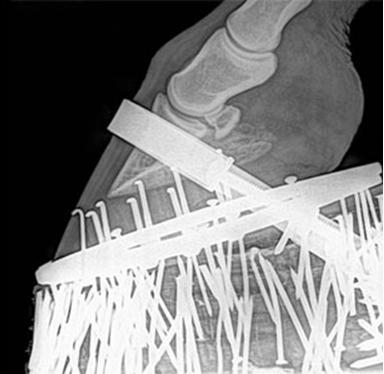By a margin of 333 to 96, the U.S. House of Representatives passed a bill last week that seeks to ban the decades-old practice of horse soring.
Horse soring is the act of inflicting pain to a horse’s legs, agitating them until their stride changes. The pain is severe enough to instill the unnatural prancing gaits sought after in horse competitions.
The horse soring process often involves soaking horses’ feet in caustic chemicals like mustard oil or kerosene, and may be followed by dressing the wounds in chains that cause lesions. Soring treatment is not just administered once. The chemical treatment is repeated through the duration of the horses’ appearances in competitions, meaning this is often a weekly occurrence.
These sorts of competitions are far from niche. LSU hosted the popular Dixie Jubilee Horse Show for decades, but discontinued it in 2004 after opinions towards horse shows and their notorious horse conditioning practices turned south.
The bill, known as the Prevent All Soring Tactics (PAST Act), will now proceed to the U.S. Senate. If it passes without executive veto, it will institute more effective measures to ban the practice that many criticize as cruel and unnecessary animal abuse.
Animal Wellness Action Executive Director Marty Irby clarified that horse soring has technically been illegal since 1970, but that penalties and fines are seldom enforced. Some horse soring inspectors can also have compromising ties to their industry.
“This bill would increase the penalties of soring and make it illegal to utilize big, slacked shoes around their feet,” Irby said. “It would allow the U.S. Department of Agriculture to license and train soring-inspectors where there would be no conflict of interest.”
Animal Wellness Action is an animal rights organization focused on promoting and enforcing policy. Last year they achieved their goal of signing into law bans on cat and dog consumption in the U.S., and animal fighting across U.S. territories.
Although the PAST Act passed through the House with a sizable majority, Irby noted that the bill was shelved for six years. He levels much of the blame for this on Senator Marsha Blackburn, who used to serve as Vice Chairwoman of the House Energy and Commerce Committee and consistently voted to stall the bill.
Blackburn represents Tennessee, where the horse industry and soring practice are most prevalent. She has criticized the bill as bringing “excessive regulatory burdens on the walking horse industry.”
Irby emphasized that the PAST Act contains only the details listed above and that it is not tainted by any sort of riders that would merit controversy.
Irby stated the PAST Act has an “uphill battle” in the Senate but that he remains cautiously optimistic.
“We have 43 cosponsors in the Senate currently,” Irby said. “Public opinion is definitely turning in our favor against horse soring.”
Citing imminent “serious scandals” about soring practices, Irby predicts the Senate will soon be put under more pressure to pass the bill.





